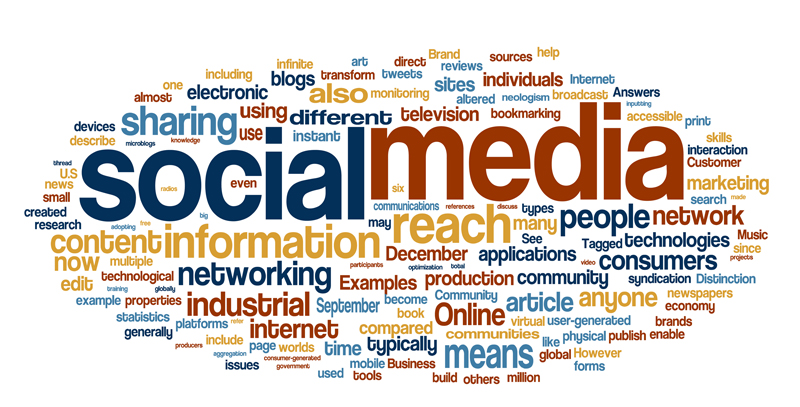- Calls to this hotline are currently being directed to Within Health, Fay or Eating Disorder Solutions
- Representatives are standing by 24/7 to help answer your questions
- All calls are confidential and HIPAA compliant
- There is no obligation or cost to call
- Eating Disorder Hope does not receive any commissions or fees dependent upon which provider you select
- Additional treatment providers are located on our directory or samhsa.gov
Social Media: Be Mindful Before You Click

Contributed by Amy M. Klimek, MA, LCPC, Director of Program Development, Eating Disorder Program Coordinator, Timberline Knolls Residential Treatment Center
The Downside of Social Media
Social media was designed to keep people connected, in touch and informed; in many ways it accomplishes that goal. However, it offers a definite downside, which too many individuals repeatedly buy into, as it leads to the erosion of self-esteem or intensifying an already negative self-image.
Blaming the Media
The media at large often comments on the number of bullies who utilize social media to hurt others, but what we see far too often are women and young girls who use it to weaken themselves. This is often done through image comparison, as individuals navigate from page to page looking at the many photos, often selfies, posted by friends or even acquaintances.
Failing to keep in mind that people only post the best photos of themselves, they make comparisons and inevitably conclude that they are not pretty enough, happy enough or thin enough, as those in the photos.
Using Social Media to Empower
If you are one of these people, then it’s time to consider a paradigm shift –time to use social media as a platform to empower, instead of devalue. This is possible and it begins with the practice of being mindful.
The experience of mindfulness is defined as an awareness of present time through observation of thoughts and feelings from a distance and without judgment of good or bad. In the practice of mindfulness, while visiting a social media site, you can ask yourself – what am I feeling? More importantly, what am I telling myself? Evaluating the function social media sites serve in your life can help limit critical judgments of others and yourself.
Do you look at friends’ pages to see what is going on in their lives, or to see how they look? Then, do you use those fabulous, possibly even faulty, images to criticize yourself? Or when you post selfies, do you count how many “likes” you get, then get distressed if you did not get more?
Understanding Your Intent
When it comes to social media, we ask you to notice the internal dialogue that is transpiring in your mind. Take steps to redirect any negative thoughts. You do have control over your response to your internal messages. Think about intentionality; if you look up a high-school friend, or old boyfriend, what is the intent?
Be honest with yourself; are your intentions positive or negative? If your secret hope is to discover that these people are not doing well, then reconsider visiting those pages. Negativity breeds negativity.
Knowing Your Values
When you post photos, select images that reflect your life – who you are, what you value and perhaps who you love and appreciate. The more we can bring attention to the people and things we value the less we will give ourselves permission to be our own bully. Empower yourself by selecting joyful photos of you laughing with friends or spending time with your family on vacation.
Visit websites not for the latest fat-free cookie recipe, or diet gimmick, but to discover things that will enrich your life, make you a happier person or better friend.
Life is full of events and situations over which you have no control. When you get on the computer, you have complete control over where you put your time and attention. Be mindful as you click.

The EatingDisorderHope.com editorial team comprises experienced writers, editors, and medical reviewers specializing in eating disorders, treatment, and mental and behavioral health.

